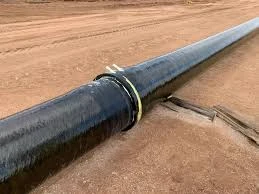
-
 Afrikaans
Afrikaans -
 Albanian
Albanian -
 Amharic
Amharic -
 Arabic
Arabic -
 Armenian
Armenian -
 Azerbaijani
Azerbaijani -
 Basque
Basque -
 Belarusian
Belarusian -
 Bengali
Bengali -
 Bosnian
Bosnian -
 Bulgarian
Bulgarian -
 Catalan
Catalan -
 Cebuano
Cebuano -
 China
China -
 China (Taiwan)
China (Taiwan) -
 Corsican
Corsican -
 Croatian
Croatian -
 Czech
Czech -
 Danish
Danish -
 Dutch
Dutch -
 English
English -
 Esperanto
Esperanto -
 Estonian
Estonian -
 Finnish
Finnish -
 French
French -
 Frisian
Frisian -
 Galician
Galician -
 Georgian
Georgian -
 German
German -
 Greek
Greek -
 Gujarati
Gujarati -
 Haitian Creole
Haitian Creole -
 hausa
hausa -
 hawaiian
hawaiian -
 Hebrew
Hebrew -
 Hindi
Hindi -
 Miao
Miao -
 Hungarian
Hungarian -
 Icelandic
Icelandic -
 igbo
igbo -
 Indonesian
Indonesian -
 irish
irish -
 Italian
Italian -
 Japanese
Japanese -
 Javanese
Javanese -
 Kannada
Kannada -
 kazakh
kazakh -
 Khmer
Khmer -
 Rwandese
Rwandese -
 Korean
Korean -
 Kurdish
Kurdish -
 Kyrgyz
Kyrgyz -
 Lao
Lao -
 Latin
Latin -
 Latvian
Latvian -
 Lithuanian
Lithuanian -
 Luxembourgish
Luxembourgish -
 Macedonian
Macedonian -
 Malgashi
Malgashi -
 Malay
Malay -
 Malayalam
Malayalam -
 Maltese
Maltese -
 Maori
Maori -
 Marathi
Marathi -
 Mongolian
Mongolian -
 Myanmar
Myanmar -
 Nepali
Nepali -
 Norwegian
Norwegian -
 Norwegian
Norwegian -
 Occitan
Occitan -
 Pashto
Pashto -
 Persian
Persian -
 Polish
Polish -
 Portuguese
Portuguese -
 Punjabi
Punjabi -
 Romanian
Romanian -
 Russian
Russian -
 Samoan
Samoan -
 Scottish Gaelic
Scottish Gaelic -
 Serbian
Serbian -
 Sesotho
Sesotho -
 Shona
Shona -
 Sindhi
Sindhi -
 Sinhala
Sinhala -
 Slovak
Slovak -
 Slovenian
Slovenian -
 Somali
Somali -
 Spanish
Spanish -
 Sundanese
Sundanese -
 Swahili
Swahili -
 Swedish
Swedish -
 Tagalog
Tagalog -
 Tajik
Tajik -
 Tamil
Tamil -
 Tatar
Tatar -
 Telugu
Telugu -
 Thai
Thai -
 Turkish
Turkish -
 Turkmen
Turkmen -
 Ukrainian
Ukrainian -
 Urdu
Urdu -
 Uighur
Uighur -
 Uzbek
Uzbek -
 Vietnamese
Vietnamese -
 Welsh
Welsh -
 Bantu
Bantu -
 Yiddish
Yiddish -
 Yoruba
Yoruba -
 Zulu
Zulu
Compact Fiberglass Tanks for Efficient Storage Solutions in Various Applications
Small Fiberglass Tanks A Durable Solution for Various Applications
In recent years, small fiberglass tanks have gained popularity across various industries due to their numerous advantages, including durability, lightweight construction, and resistance to corrosion. These tanks are made from a composite material consisting of fiberglass wrapped around a resin, making them ideal for a wide range of applications, from water storage to chemical containment.
One of the primary benefits of small fiberglass tanks is their exceptional durability. Unlike traditional materials such as steel or concrete, fiberglass does not rust or corrode over time. This characteristic is particularly valuable in applications where tanks are exposed to harsh environmental conditions, such as chemical plants or agricultural settings. The ability of fiberglass to withstand extreme temperatures and UV exposure further contributes to its longevity, making it a cost-effective solution in the long run.
In addition to their durability, small fiberglass tanks are remarkably lightweight. This feature makes installation and transportation significantly easier compared to heavier alternatives. When it comes to installation, the reduced weight allows for simpler handling, which can lead to decreased labor costs and faster deployment. Moreover, the ease of transportation means that these tanks can be relocated effortlessly as needs change, offering flexibility to various operations.
Small fiberglass tanks are also highly versatile. They can be customized to meet specific requirements, including size, shape, and storage capacity. This adaptability allows businesses to optimize their operations, whether they need tanks for water, wastewater, oil, or various chemicals. Furthermore, fiberglass tanks can be designed with specific features such as built-in sumps, overflow protection, and access hatches, enhancing their functionality and efficiency.
small fiberglass tanks

The environmental benefits of fiberglass tanks should not be overlooked either. As industries increasingly prioritize sustainability, fiberglass tanks offer a more eco-friendly option compared to traditional materials. Their longevity means less frequent replacements, thus reducing waste. Additionally, many manufacturers are now producing fiberglass tanks using recycled materials, aligning with the movement towards greener practices.
Maintenance is another area where small fiberglass tanks shine. Their non-corrosive nature means there is minimal risk of rust or decay, resulting in lower maintenance costs and less frequency of required inspections. Regular cleaning is still recommended, but the overall upkeep is simpler compared to metal tanks, allowing businesses to focus on their core operations.
In the agricultural sector, small fiberglass tanks are often used for storing fertilizers and pesticides, as they can safely contain these chemicals without the risk of leakage or contamination. In municipal waste management, they provide reliable solutions for sewage and wastewater treatment processes. Their applications also extend to residential use, where homeowners opt for fiberglass tanks for rainwater harvesting and greywater systems.
In conclusion, small fiberglass tanks are a robust, lightweight, and versatile solution for a wide array of storage needs. Their durability, customization options, and environmental benefits make them an attractive choice for industries ranging from agriculture to municipal services. As the demand for reliable and efficient storage solutions continues to grow, fiberglass tanks are undoubtedly set to play a significant role in shaping the future of storage technology.









